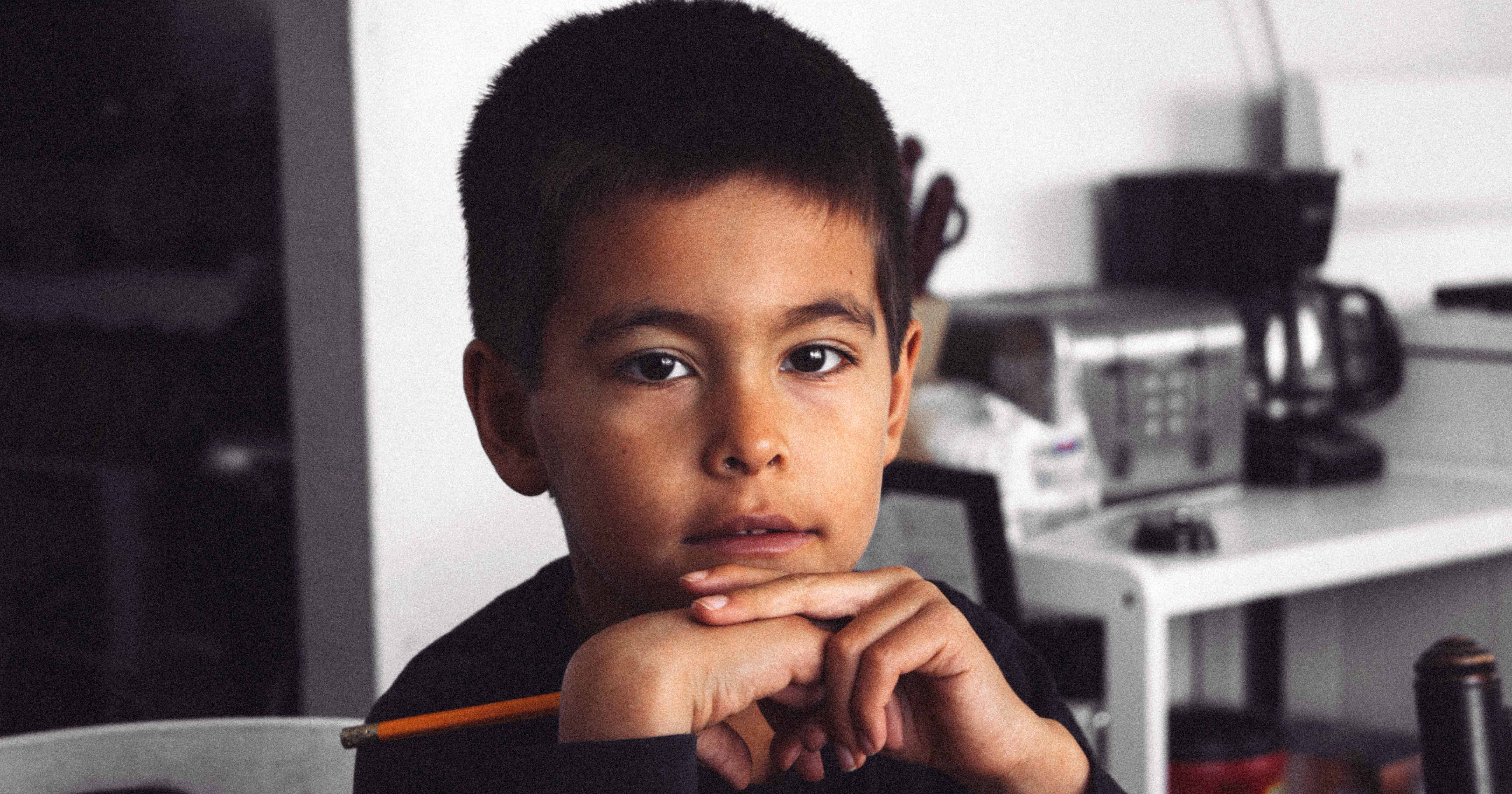 Photo by Jeremy Avery on Unsplash
Photo by Jeremy Avery on Unsplash
By David Rockower
Witnessing a roomful of students typing or scribbling away, occasionally pausing to ponder a point or reconsider a sentence—this is teacher bliss. Ideally, they are immersed in twenty different projects, twenty different stories where they might be revealing snippets of their lives, crafting powerful arguments for change, or sharing a passion. But how do we guide them to a place where they are writing for more than their teacher, for more than a grade? In my last blog, I explored several dimensions of vulnerability and assessed the potential benefits of emotional risk-taking. Here, I share concrete examples of how my own vulnerability lead to authentic learning and a term we coined recently: quiet wonderment.
Vulnerability and engagement need to be defined for students, but they also need to be demonstrated. This school year, I’ve pushed myself to share openly. By October, my students knew I struggled as a middle schooler, have a passion for baking bread, and continue to battle perfectionism. I hoped the vulnerability I demonstrated would translate to authentic writing on their part.
I felt that Liz Prather’s Project-Based Writing (2017) model would be an excellent framework for my goal of nurturing authenticity. Liz’s model takes students through idea generation, formal proposals, feedback sessions, an author-selected form of sharing, and publication/presentation/performance. The student choice and sharing components would blend well with my action research question: In what ways does teacher vulnerability impact students’ engagement and classroom community?
Idea generation is important—writing teachers know all too well those dreaded words: I don’t know what to write about. Prather offers many strategies to mine for writing topics; one such strategy is her life inventory. Students have the opportunity to answer one hundred questions about their lives. One question that garnered some chuckles and confusion was When was the first time you realized your parents were human? Because students thought the question silly, I decided to use the prompt to write an essay about the first time I realized my father was human. I kicked off the proposal sharing by explaining the subject of my essay: how a loss in our family helped me see a side to my father I’d never witnessed before. After I read my proposal, I could sense some discomfort. I’m not sure whether it was the gravity of the topic or the change in my body language while reading; either way, the tone was set, and I wasn’t sure how it would affect the rest of the session.
Honestly, I didn’t know what kind of topics my middle schoolers would propose. In many schools, curriculum requires teachers to complete fixed genre studies. But, as I’ve come to realize that most real-world writing is a blend of several genres, I think it’s important to find space and time for at least one non-genre-specific piece. My students’ topics were diverse and bold:
- An infographic about overcoming a nut allergy through oral immunotherapy
- A memoir about dealing with generalized anxiety
- A sports blog reflecting on a dreamlike season for a student’s favorite football team
- A list of ten life lessons a student learned from watching her favorite television show
- An essay about the importance of foster care
- A TED Talk about the pros and cons of social media from a teen’s perspective
- An editorial about Nike’s commercial featuring Colin Kaepernick
- An I Believe in Pride essay focusing on a student’s gender fluidity.
As students read these topic proposals aloud to the class, I noticed the intense quiet. I watched them as they listened to their peers. I saw direct eye contact, smiling, and head nodding. What I didn’t see: doodling, side conversations, anyone asking to leave the room. Several students mentioned how creative or brave or unique a given project proposal was, and I realized I wasn’t needed to move the conversation along; they were leading and supporting the process.
…
After the proposals were read, I heard that one line all English teachers love: “Can we please write now?” Next came the inevitable struggle to see these ambitious project ideas through to completion. I think they felt added pressure, because they were writing for more than a grade. There was personal investment in their writing; the work they were doing would be a reflection of themselves: a personal battle, a strong belief, a story about who they are outside school. This shift has huge benefits in terms of motivation and engagement, but it also creates a new responsibility to self—I want to do this, and I want to do it well because I care.
Feedback sessions, or what Prather refers to as inquiry week, take place at the midpoint of the project. By this time, most students have something substantial to share. I decided to read a draft of my essay aloud. I wrote about how my stoic father became emotional after a loss in our family. I was seventeen when it happened, and it was really the first time I saw him vulnerable. While writing the piece, I never imagined how difficult it would be for me to read aloud. I had to pause several times, and I knew my students could see me struggling. When I finished, there was silence—no clapping, no comments. I noticed one student release a long-held breath. I asked for feedback: What worked for you? What could you see? What questions remain unanswered? They named specific lines that stuck with them and made a couple suggestions for fleshing out a scene or two. And they thanked me for reading the essay.
Student sharing ensued, and, again, I was struck by the deep quiet and careful listening. After each reading, the feedback was supportive, specific, and honest. Later, I asked students to reflect on our session and whether my story impacted their engagement. What follows is a sampling of their responses:
"I appreciate you trusting all of us enough that you were able to share this piece about your dad."
"After you read it, the class didn’t clap. Not clapping isn’t always a bad thing, though. We were all just so absorbed in your story that we didn’t want to snap back into reality. The entire classroom felt connected to you, and we felt connected to each other because we had all just listened to the same, vulnerable story that you shared."
"I think that when someone is sharing something vulnerable, it totally changes the atmosphere of the room and everyone gets way more engaged than they would if you were sharing something that’s not as important to you."
I also asked students to reflect on how the experience might have impacted the sense of community in our classroom. Here’s what they had to say:
"For me personally, whenever someone is reading something that I know is hard for them, I automatically give them 100% of my focus and respect. I get totally absorbed in what they’re saying because I know they’re giving me their trust and I give them all of my respect for that."
"Any time that anyone shares something vulnerable to you, you feel more comfortable sharing something vulnerable with them, so when everyone in our class, including you, is stepping out of their comfort zones, I feel like I could do the same because I trust everyone to be respectful."
"Everyone has been very good about respecting each other’s topics they choose to write about for their projects and everyone is getting more and more comfortable with each other. It’s a very nice community to be a part of."
Reading my essay was not easy, but I’m glad I did it. I believe many of us experienced a new kind of quiet, a laser-focused listening that continued when students shared their proposals. During our next class, we talked about the intense quiet that occurs when someone is being vulnerable. We tried to name it. “It’s the kind of listening that leads to not clapping,” said one student. How about “quiet wonderment,” I suggested. And for now, that has stuck. We’ve had some other moments of quiet wonderment, and they typically occur when someone has stepped into the spotlight and said, Listen to my story—it may make you laugh, cry, or squirm in your seat. It might help you understand what I think about, struggle with, or hope to change. Inevitably, though, it’s going to allow you to see me in a new way. And that, I believe, is authentic learning.
…
Work Cited
Prather, Liz. 2017. Project-Based Writing: Teaching Writers to Manage Time and Clarify Purpose. Portsmouth, NH: Heinemann.
 David Rockower (Boalsburg, PA) believes that classrooms should be a second home for students, where they discover and celebrate strengths, where student voice, choice, and engagement are paramount. Currently, he teaches English at the Delta Program, a small, democratic middle school in the State College Area School District. He is also a bi-monthly essayist for State College Magazine and has published articles in The Washington Post and Education Week. In 2017, David was awarded as National Middle School English Teacher of the Year by the National Council of Teachers of English. You can follow him on Twitter @dgrock
David Rockower (Boalsburg, PA) believes that classrooms should be a second home for students, where they discover and celebrate strengths, where student voice, choice, and engagement are paramount. Currently, he teaches English at the Delta Program, a small, democratic middle school in the State College Area School District. He is also a bi-monthly essayist for State College Magazine and has published articles in The Washington Post and Education Week. In 2017, David was awarded as National Middle School English Teacher of the Year by the National Council of Teachers of English. You can follow him on Twitter @dgrock


